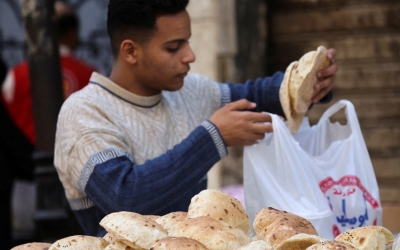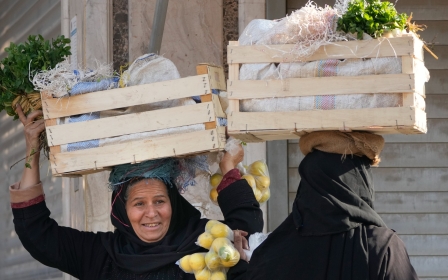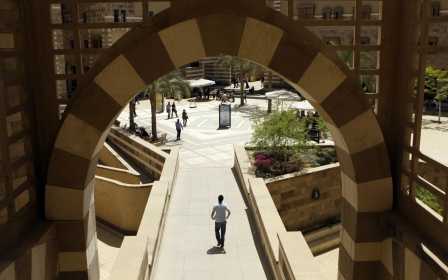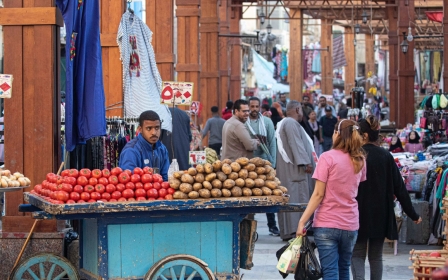Egypt: Affordable Russian cooking oil pours into markets as prices soar
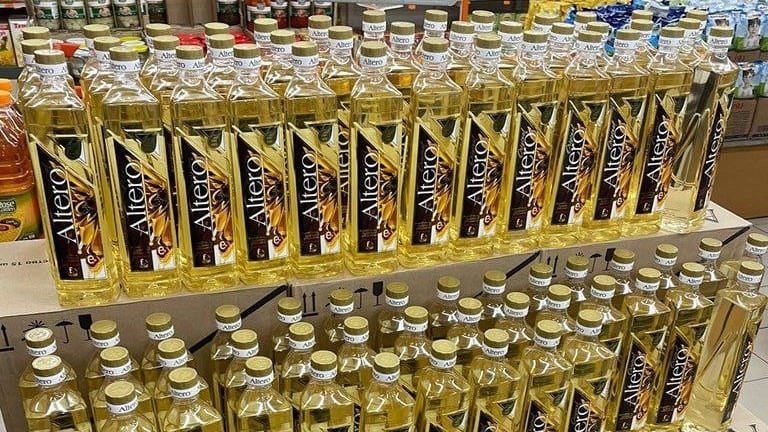
Russian sunflower oil is now sold in Egyptian markets at competitive prices, as the populous country faces staggering inflation and a currency crisis.
Egypt imports more than 90 percent of its local cooking oil consumption and has already imported over 80 percent of its sunflower from Russia between 2002 and 2021.
In the past, there were no bottles of cooking oil carrying the name of Russian companies and brands. Egyptian import companies or the government used to buy quantities of oil, then bottle it under local names, such as Crystal.
Now, Russian companies are exporting their own bottles directly. The latest shipment of Russian sunflower oil was made of 18,000 bottles, each weighing 810 grams. The product sells for 58 Egyptian pounds ($1.90) a bottle, compared to 60 pounds for other brands.
Egypt imports most of its food needs. Such dependence on imports has exacerbated the country's economic crisis in the midst of the Russia-Ukraine war.
New MEE newsletter: Jerusalem Dispatch
Sign up to get the latest insights and analysis on Israel-Palestine, alongside Turkey Unpacked and other MEE newsletters
The volume of trade between Egypt and Russia is estimated at $5bn annually. Before the Russian-Ukrainian war, the two countries used to provide Egypt with almost 80 percent of its wheat imports.
The problems facing the international supply chain and the war-induced global energy crisis have taken their toll on food prices in the international market and on Egypt's coffers, forcing the country to pay more for its food imports.
The rise in commodity prices, especially of food, has also been coupled with repeated devaluations of the Egyptian pound by the Central Bank of Egypt which, in the light of a recent loan deal with the International Monetary Fund, has had to abdicate its longstanding managed exchange-rate regime and allow the Egyptian currency to float freely.
'Reasonable prices and fine quality'
The Russian Embassy in Cairo took to Twitter to promote the sunflower oil brand Altero, enumerating the health benefits of their country's sunflower oil, while arguing that it is competitive in terms of price and is of better quality than most oil brands sold in Egypt at present.
Russian companies have been trying to enter the Egyptian market for some time, striving to compete for a share of a market of more than 100 million consumers.
Industry specialists argue that turning to Russian food products is less about cooking oil or the Russians' desire to break out of their country's current isolation, and more about Egypt turning to Russia to increase the amounts of food on offer in its market in its bid to bridge a yawning food gap and rein in runaway food prices.
Hesham al-Dugwi, the head of the Food Section at the Federation of Commerce Chambers, told MEE that the presence of Russian food products in Egypt will contribute to increasing the amounts of food on offer, partly bridge the gap between offer and demand and reduce financial burdens on consumers.
Dugwi added that the supply of the Russian cooking oil will contribute to breaking the monopolies imposed on cooking oil supplies by some companies that have used the present crisis to increase prices unreasonably.
Apart from the oil, Egypt has given licences to dozens of Russian companies to export fish to Egypt.
The Federal Service for Veterinary and Phytosanitary Supervision in Russia said last week that 89 Russian fish companies are ready to export their product to Egypt.
This Russian interest is apparently old, but it demonstrated itself in practical terms almost a year ago with the opening in late 2021 of a permanent pavilion of Russian food products by the Russian Export Centre, a government-run institute that works to develop Russian exports to other countries.
The pavilion functions as an intermediary between food production companies in Russia and import companies in Egypt.
Pavilion head Amr al-Beltagi expects Russian companies to increase their exports to Egypt in the coming period, with demand growing in the Arab country for what he described as "quality products".
"Russian goods will be very competitive in Egypt because of their reasonable prices and fine quality," Beltagi told MEE.
Middle East Eye delivers independent and unrivalled coverage and analysis of the Middle East, North Africa and beyond. To learn more about republishing this content and the associated fees, please fill out this form. More about MEE can be found here.


